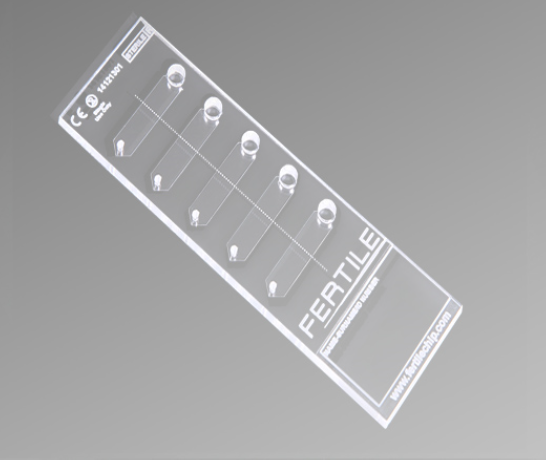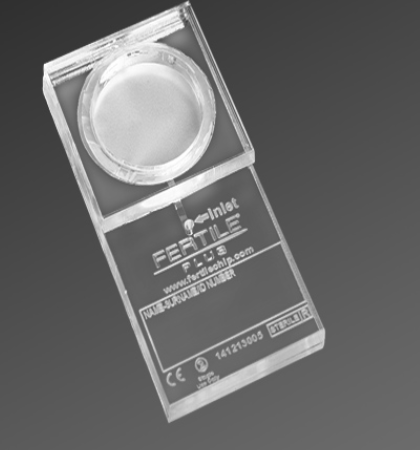Chip Baby – New Infertility Technology that Changed the Life of Belma
Chip Baby – New Infertility Technology that Changed the Life of Belma
19 years, 10 Intrauterine Insemination, 6 IVF procedures summarize the suffering that Belma, the nurse from Turkey, went through due to the difficult infertility case.
But then, Kursad, her new born, wrote a new life for Belma

|
Infertility as defined in the clinical practice “is a disease of the reproductive system defined by the failure to achieve the inability to clinical pregnancy after 12 months or more of regular unprotected sexual intercourse.”
|
Statistically, it is estimated that 70 to 80 million couples suffer from infertility worldwide. Male infertility which contributes to about one half of infertility cases are due to low sperm count, which is commonly caused by nutritional deficiencies, stress, chronic inflammation, and environmental exposure to particular toxins. Low sperm count, low sperm motility, and sperm abnormality impair the ability of sperm cells to fertilize an oocyte naturally.
Based on the different types of infertility reasons, there are different various treatments that range from invasive (surgical) to non – invasive (not surgical) ones. These different treatments are:
- Medication such as the ones used to help in the ovulation and sperm quality
- Surgery to treat abnormalities in the reproductive systems
- Assisted reproductive technology (ART)
Focusing on ART, what does it mean?
In general, ART procedures involve surgically removing eggs from a woman's ovaries, combining them with sperm in the laboratory, and returning them to the woman's body”. Such procedures include, among others, Intrauterine Insemination (IUI), Invitro fertilization (IVF) and Intracytoplasmic Sperm Injection (ICSI).
In brief:
Intrauterine Insemination- IUI - (or Artificial Insemination) is a relatively simple infertility treatment which involves transferring specially prepared semen directly into the uterus via a thin catheter.
In vitro fertilization (IVF) is a process where the egg of the female is combined with the sperm cells (50 to 100 thousands) outside the body. After fertilization, the fertilized egg is implanted in the woman uterus with the intention of reaching a successful pregnancy.
In the Intracytoplasmic Sperm Injection (ICSI), a single sperm is injected directly inside the egg to induce fertilization.
Selection of highly-motile sperm is crucial to successful ART because fertilization of the oocyte (oocyte is the female cell produced in the ovary and involved in reproduction and develops into embryo after fertilization) which and ultimately a viable birth depends largely on sperm quality. Here comes the Chip baby.
Chip baby, what it is:
The identification and isolation of the most motile sperm with DNA integrity are essential to IVF and ICSI, ultimately affecting treatment consequences and the health of offspring.
Since April 2018, MEALIS has been conducted many workshops across the MENA region, talking to Embryologists and IVF specialists about the clinical outcomes with the usage of this unique technology. Since then, chip baby (Fertile Microfluids Sperm Sorting Chips) were able to help treating infertilities in many couples in Kuwait, Oman, Qatar and United Arab Emirates.
|
Chip Baby, known as well as FERTILE® Chips, is a unique Microfluidic Sperm Sorting technology, developed to sort sperm according to sperm morphology, motility, but mostly according to DNA integrity. Used globally since 2013, Chip baby or FERTILE® Microfluidic Sperm Sorting chips are FDA and CE marked product and are newly launched in Middle East to support in the best sperm selection to be used in the mentioned ART procedures. |


Is Chip Baby the new technology that will give hope to infertile couples?
The story of Belma can be the answer.
References:
- Medical and socio-cultural aspects of infertility in the Middle East ESHRE Monographs, Volume 2008, Issue 1, 1 July 2008, Pages 34–41
- Microfluidics for sperm research
- CDC: Center of Disease control.
